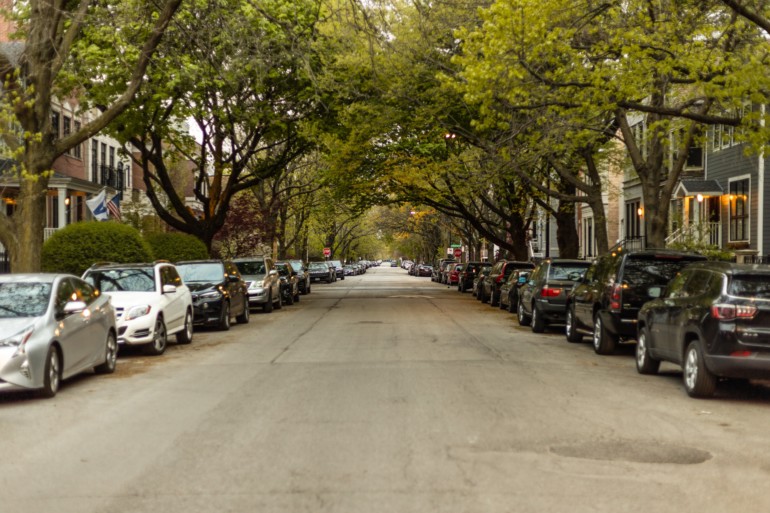As part of our “You Said It” Op-Ed series, we invite contributors to submit their opinion pieces. The views reflected in these pieces may not be our own. Have a submission? Contact us here.
In addition to our day jobs, we have morphed into chefs, homeschool teachers, psychologists for our sad seniors, and cheerful event planners of staycations. But now, the sparkle in the eyes of our middle schoolers is going dim; family dynamics are getting tense, we long to see our parents, the prospect of a summer with no camp, no jobs for kids is concerning. We go for a walk to get our 10,000 steps in, and neighbors avoid our path and even our eyes. The streets of our neighborhoods are empty; our favorite restaurants, bakeries, and small shops are closed. Yellow tape criss-crosses the playgrounds. The local jeweler where we would get a necklace for our daughter’s 18th birthday is closed. The gyms, yoga studios, the nail salons, the spas, the dentists are closed. We have not been able to schedule our overdue mammogram. We get home, and there’s an email about a classmate who committed suicide. Our friend across the street is retreating, depressed, not even coming out of her house.

Meanwhile, big box stores, marijuana stores, liquor stores are open. Thirty people can be in a room for a blood drive but not for a haircut. The fabric of the neighborhoods of our towns is disintegrating before our eyes. Some are trusted; some are not. Do you get a feeling that in this crisis, women are hurting? It’s not just a feeling. The Illinois shelter in place orders and its numerous extensions have been hurting women.
A study published this past April by the National Bureau of Economic Research on the Impact of COVID-19 on Gender Equality shows that only 22 percent of female workers are employed in highly telecommutable occupations. In this crisis, women lost 11.3 million jobs of the 20.5 million US jobs lost in April, announced by BLS. According to the Illinois Department of Labor, women hold 52% of leisure, food preparation and service occupations, and over 75% of the personal care jobs, the office support, and the healthcare practitioners and 73% of retail jobs. For the first time in a recession, women’s employment and lives are the ones most impacted. Who is speaking for us? No one.
Our governor, JB Pritzker, can save the fabric of our neighborhoods and our livelihoods. Under the US Constitution, the states have the power to design a response that fits their unique geography, population density, age, health, and community’s social practices. Illinois and Michigan are comparable in population to Sweden, Florida has an economy equivalent to Australia. South Dakota does not have the same population density and social habits as New York. States legislatures can grant power to counties and cities to implement highly customized responses. Under the current emergency order in Illinois, the governor has executive authority.
Governor JB Pritzker is sheltering in his Gold Coast home, rightly concerned about the risks to his health. (Editor’s note: It’s been confirmed that Governor Pritzker’s wife and daughter recently returned from Florida, and that the family has also visited their farm in Wisconsin.) He is most likely surrounded by advisors who are tech investors, union leaders, and politicians. Restaurant owners, retailers, hairdressers, trainers are not part of his circle. Our Illinois State Representatives have not yet met to speak for those they represent, not even on zoom. No one is speaking for the small brick and mortar businesses; no one is speaking for the kids and families facing mental illnesses. No one is standing for women who have lost their jobs. It’s up to us, mothers, and women to tell the governor of Illinois our stories, the stories of the small businesses we lean on to be a community, so they can be part of an accelerated reopen plan. Otherwise, they might close forever.
Join the conversation: #saveourcommunity #GovPritzkerHearMyStory
How to Help:
So many in our community are struggling right now. Here are some local nonprofits that urgently need your support right now.
More from Better:
- How to Maintain a Positive Mindset During a Crisis
- 18 Shows to Stream Now, Based on the Ones You Already Love
- How to Protect Your Privacy – And Your Money – With Smart Cybersecurity Practices
 Sylvie Légère has more than 20 years of experience working in technology, process, and change management for Accenture, TD Ameritrade, and JP Morgan Chase. As the former owner of a bicycle shop outside Chicago and the developer of an app for people with developmental disabilities, she knows the challenges small businesses face. And as a parent, Sylvie feels the pressure all parents do — how do we leave the world a better place for our children? In answering that question, she’s discovered a passion to help those without a voice find their own and get out of their comfort zone. She co-founded The Policy Circle (thepolicycircle.org) to provide women with opportunities to gain the confidence to join the public policy dialogue. The Policy Circle is a national network of women who lead 323 circles present in 40 states and now in 4 countries. Sylvie earned an undergraduate degree in Management Information Systems from the University of Ottawa, Canada, and a Master’s in Computer Science with a specialization in the Learning Sciences from Northwestern University, in Evanston, Illinois.
Sylvie Légère has more than 20 years of experience working in technology, process, and change management for Accenture, TD Ameritrade, and JP Morgan Chase. As the former owner of a bicycle shop outside Chicago and the developer of an app for people with developmental disabilities, she knows the challenges small businesses face. And as a parent, Sylvie feels the pressure all parents do — how do we leave the world a better place for our children? In answering that question, she’s discovered a passion to help those without a voice find their own and get out of their comfort zone. She co-founded The Policy Circle (thepolicycircle.org) to provide women with opportunities to gain the confidence to join the public policy dialogue. The Policy Circle is a national network of women who lead 323 circles present in 40 states and now in 4 countries. Sylvie earned an undergraduate degree in Management Information Systems from the University of Ottawa, Canada, and a Master’s in Computer Science with a specialization in the Learning Sciences from Northwestern University, in Evanston, Illinois.

